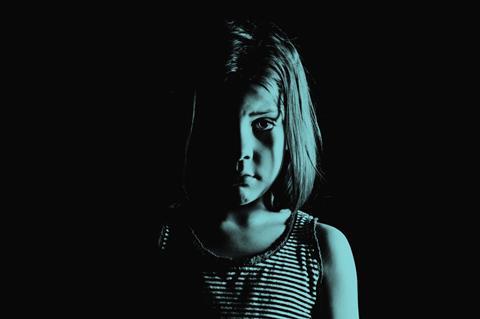Each month, the safeguarding experts at Thirtyone:eight help us to keep those in our care safe, as well as our policies and procedures sound.

The Independent Inquiry into Child Sexual Abuse (IICSA) recommended that reporting observed or suspected child sexual abuse should be mandatory for those working with children in England and that this should apply to those working in positions of trust and in regulated activity with children. The government is working through these recommendations, and the home secretary has said that professionals such as teachers and carers will face the ‘full force of law’ if they fail in their duty to protect.
What is mandatory reporting?
Mandatory reporting would place individuals with particular roles and responsibilities – to be known as ‘mandated reporters’ – under a statutory duty to report child sexual abuse where they see abuse occur, a child or perpetrator tells them about it or they suspect abuse based on recognised signs.
Child sexual abuse should be interpreted as any act that would be an offence under the Sexual Offences Act 2003 where the person abused is a child under the age of 18. Child sexual abuse occurs when a child is coerced or manipulated into sexual activities. They might not understand that what’s happening is abuse or that it’s wrong, and it can happen online or in person.
The inquiry recommended that mandated reporters should report to either local authority children’s social care or the police as soon as possible, and that those who fail to report where they witness child sexual abuse or receive a disclosure from a child or perpetrator should face prosecution.
“Professionals…will face the ‘full force of law’ if they fail in their duty to protect”
Who are mandated reporters?
A mandated reporter is any person working in regulated activity with children (under the Safeguarding and Vulnerable Groups Act 2006). This includes roles such as scout leaders and youth workers.
A mandated reporter is any person working in a position of trust (as defined by the Sexual Offences Act 2003 and the Police, Crime, Sentencing and Courts Act 2022). This includes roles such as teachers, doctors, social workers, sports coaches, foster carers, faith leaders and police officers.
Will mandatory reporting help victims and perpetrators to come forward?
Those in support of mandatory reporting laws often refer to countries where it already exists, claiming that making failure to report child sexual abuse a criminal offence has helped to better protect children. The way these laws are implemented varies in terms of who is covered by the reporting duty, what has to be reported and the extent of criminal sanctions for non-compliance. Mandatory reporting laws have been adopted in some form by most countries worldwide, including 86 percent of European nations, Canada, Australia and some states in the USA.
That said, mandatory reporting has come in for its fair share of criticism. In the Catholic Church, the confessional is a confidential space to confess sin before God via an intermediary priest. According to Church canon law, violating the seal of confession is a religious offence and priests are supposed to defend the seal, even with their lives.
Critics of mandatory reporting say that if children knew that what they said would have to be reported to authorities, they wouldn’t feel like there was a safe space to talk about their worries or any harm they’d suffered. Also, that mandatory reporting would stop perpetrators or those who feel that they might offend from coming forward for ‘repentance and reform’, which would hinder rather than help protect children.
Victim and survivor voices
What about the children who either never spoke up about their abuse because they didn’t think they’d be believed or did speak up but weren’t believed? One of the key themes to emerge from IICSA’s final report was that there were churches who had protected their reputation over people.
IICSA was the largest inquiry to tackle the subject of child sexual abuse in institutional settings and was different to other public inquiries in the UK in that it also set up the Truth Project, a national listening exercise. This project invited over 6,000 survivors of child sexual abuse across England and Wales to share their experiences and their suggestions for change. More than one in ten survivors of child sexual abuse who shared their accounts with the inquiry’s Truth Project reported sexual abuse in a religious institution. Of the victims and survivors’ forum, 88.6 percent supported mandatory reporting. Alexander Kubeyinje, national director of safeguarding in the Church of England, acknowledged that the Church has failed in its safeguarding responsibilities, leaving many people feeling “a sense of betrayal, loss, trauma and injustice”.
The challenges of mandatory reporting
Protecting children must be paramount in our homes, schools and churches – no exemptions or concessions. Children are the priority as a vulnerable group in society and however we work out the details that must be our guiding principle. However, legislating mandatory reporting is complex. Regulating or even mapping the thousands of settings that exist is a huge challenge. Concerns have also been raised, based on some evidence where mandatory reporting laws exist, of over-reporting, which can make it harder to identify children at risk and take swift action.
Mandatory reporting as a law must be designed effectively if it is to work and must be implemented and resourced well. Councils, agencies and the police need sufficient resources to investigate reports, and victims and survivors of abuse must have the care and support they need so that they aren’t retraumatised in the process, with enough funding available to make this a reality.
Church staff and voluntary workers in regulated activity with children or in positions of trust would need to build on and strengthen any existing training, safeguarding policy and procedures. They must ensure there are no gaps and that no one gets left behind. But policy and procedure, even with more robust reporting measures, won’t succeed in an environment where people don’t feel safe to speak up about concerns they have and where lack of transparency, accountability and unhealthy power dynamics create barriers to disclosure.
Policy and procedure must be planted in healthy cultures where even the most vulnerable individual knows that they’ll be listened to with care and sensitivity, and that what they say will be taken seriously. Will removing confidentiality prevent children from disclosing abuse? However rare the cases may be where this happens, confidentiality should never be guaranteed where a child has been harmed or is at risk of harm.
If you or your church needs safeguarding advice, call the Thirtyone:eight safeguarding helpline on 0303 003 1111.











































